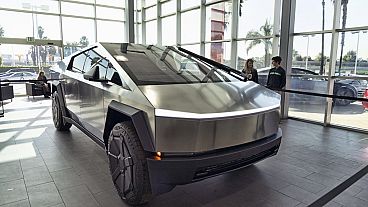A ban on the rental of electric scooters comes into effect in Paris on Friday. But some experts feel not enough is being done to look at ways of replacing car journeys with more sustainable modes of transport
Urban mobility in Europe is a fast developing area which involves both the public and private sectors, says urban mobility expert Peter Staelens of the NGO Eurocities.
The ban on rented electric scooters in Paris is exceptional because it was the result of a public referendum back in April. Residents voted by almost 90% in favour of a ban, although turnout was a disappointing 7.5%.
According to Staelens, electric scooter companies are well aware these vehicles cause controversy wherever they operate. Most complaints focus on safety, illegal parking and the dangerous and illegal use of the scooters. So it makes sense that local governments should take greater steps to monitor their use.
Staelens believes there are a number of contradictions between the different aims of the players in the sector. Private companies are focused on profit and attracting customers, while local authorities have public service objectives.
Paris is not the first city to introduce a ban on electric scooters. In Copenhagen, a ban was introduced in 2020 before electric scooters were allowed back onto the streets, but under stricter conditions.
Staelens says there is a need for more transparency on the part of the companies running the electric scooters in cities. He feels more data is needed on the sustainability of the use of such vehicles and services and on their safety and the benefits they bring.
"They (the operating companies) have all sorts of sensors to see where electric scooters are parked, where they're being used, how they're being used, whether they're in compliance with the rules set by local authorities. They can also impose certain restrictions or even a reward system for proper use. I assume they also have the power to block certain users or restrict the use of electric scooters to people who are abusive," he says.
According to Staelens, the authorities also need to introduce more regulatory measures.
Some urban mobility experts call electric scooters the "motorisation of pedestrians" as the main goal in the transport sector is to relieve pressure on roads and reduce emissions. Walking though, remains the most environmentally friendly and healthy way to get around.
"An important question we need to ask is whether electric scooters lead to a shift from individual car use to a more environmentally friendly mode. For example, how many car journeys have electric scooters replaced? We know that this is the case for public transport and bicycles, they do drive a shift to more active and sustainable modes of transport. For electric scooters, this picture is not yet clear," says Staelens.
European city authorities have started to pay more attention to pedestrians, their comfort and safety, especially as extreme weather conditions have recently forced them to take the issue more seriously.
Last year 400,000 people used electric scooters in Paris. After the ban comes into effect, the Paris City Hall expects to expand bike rental services in the city.



